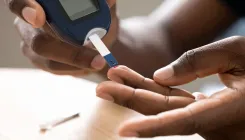Childhood Abuse Doubles Risk of Adverse Health in Adulthood: Research

Synopsis
Key Takeaways
- Children facing abuse are at higher risk of health issues.
- Sexual abuse increases health risks by 55%-90%.
- Physical abuse raises risks by 20%-50%.
- Protective adults improve health outcomes.
- Policymakers need to support effective programs for children.
New Delhi, March 11 (NationPress) Children who undergo physical and sexual abuse are at a heightened risk—twice as likely—to encounter a range of physical and mental health issues in adulthood, such as angina, arthritis, asthma, COPD, heart attack, depression, and disability, according to a recent study.
The research, featured in the journal Child Maltreatment, revealed that children who experienced sexual abuse were between 55 percent and 90 percent more likely to endure these health challenges compared to their non-abused peers.
Those who faced solely physical abuse exhibited a significantly elevated risk of these health outcomes, ranging from 20 percent to 50 percent.
The presence of a protective adult within the home correlated with improved health outcomes following incidents of physical and sexual abuse, offering valuable insights for intervention strategies, according to researchers from the University of Toronto, Canada.
“People often overlook the long-term effects that early adversities can impose on health outcomes later in life,” stated Shannon Halls, a Research Coordinator at the university’s Institute for Life Course and Aging.
“Our findings highlight the detrimental links between early adversities, such as sexual and/or physical abuse, and diverse health issues in adulthood,” Halls emphasized.
Importantly, children without a protective adult—regardless of their abuse history—were found to be 20 percent to 40 percent more likely to face negative physical health outcomes and were twice as prone to suffer from depression in their adult years.
The study analyzed data from over 80,000 adult respondents in the US between 2021 and 2022.
The findings stress the “importance of fostering positive relationships between children and the adults in their lives,” Halls noted, urging policymakers to develop effective programs aimed at supporting children.









